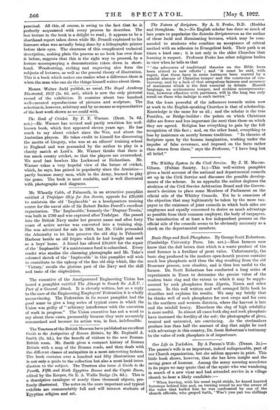Bask Slags and Rock Phosphates. By George Scott Robertson. (Cambridge
University Press. 14s. net.)—Most farmers now know that the dull brown dust which is a waste product of the steel furnace is a fertilizer of great value. Unfortunately, the basic slag produced in the modem open-hearth process contains much less phosphoric acid than the slag resulting from the old Bessemer process, now obsolete, and is thus less useful to the farmer. Dr. Scott Robertson has conducted a long series of experiments in Essex to determine the precise value of the modern basic slag and the -extent to which it may be supple- mented by rock phosphates from Algeria, Nauru and other sources. In this well written and well arranged little book he describes and explains his results. We may say briefly that he thinks well of rock phosphates for root crops and for corn in the northern and western districts, where the harvest is late and the rainfall heavy. Elsewhere the slag of ' high solubility is more useful. In almost all cases both slag and rock phosphate have increased the fertility of tho soil : the photographs of plots, treated and untreated, are convincing. As the steelmakers produce-less than half the amount of slag that might be used with advantage in this country, Dr. Scott Robertson's-testimony to the value of rock phosphate is of importance.


































 Previous page
Previous page